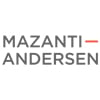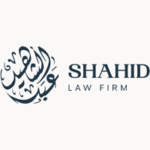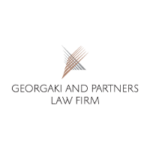-
What are the key rules/laws relevant to M&A and who are the key regulatory authorities?
M&A transactions in France are subject to a number of laws and regulations, primarily corporate law (Code de commerce), civil law (Code civil), tax law (Code général des impôts), labor law with respect to employees and works councils (Code du travail), foreign direct and indirect investment laws and regulations, as well as merger control laws and regulations. Targets in certain industries are also subject to additional sector-specific rules and regulations. Publicly traded companies are subject to additional securities, prospectus and tender offer rules, both at the French and EU levels.
As regards merger control, the French Competition Authority (Autorité de la concurrence) must be notified when all of the three following conditions are met:
- the total global pre-tax turnover of all the companies or groups of legal persons or individuals who are parties to the transaction is greater than 150 million euros;
- the total pre-tax turnover generated in France by at least two of the companies or groups of legal persons or individuals concerned is greater than 50 million euros; and
- the transaction does not fall within the scope of the European Union’s jurisdiction.
The European Commission is competent where the transaction involves the territory of several EU Member States and (i) the turnover of all the parties to the transaction exceeds 5 billion euros worldwide and (ii) the turnover of at least two of the companies exceeds 250 million euros in the EU. However, the European Commission may decide to refer the case to the French Competition Authority if it considers that the local authority is better suited to examine the case or if the transaction occurs mainly on the French territory.
As regards foreign direct and indirect investments, there is an increasing level of control over foreign investments in France and more generally in the EU in the wake of the COVID-19 pandemic. In 2023, 67,3% of the investments in the EU were made by non-European ultimate investors, mainly from the United-Kingdom, the United States of America, and Canada. Within the European Union and the European Economic Area, investments were mainly made by ultimate investors from Germany, Luxemburg, and the Netherlands. In France, out of the 309applications processed by the Direction Générale du Trésor (General Treasury Department of the Ministry of the Economy), 135 foreign direct investment transactions in sensitive French entities were authorized by the Ministry, of which 60 authorizations were authorized under certain conditions in order to protect national interests.
-
What is the current state of the market?
In 2023, following the continuing impact of the Ukraine invasion and the prolonged period of high interest rates across the EU, the M&A market in Europe remained slower than the 2021 record levels, particularly in private equity transactions. The market was still subdued throughout 2023, though M&A actors remained cautiously optimistic, preparing for improved conditions in 2024. In 2024, the European market showed signs of recovery, with an increase in deal activity, particularly in countries like the UK (+131%), Sweden (+111%), and France (+29%). However, some regions like Germany (-52%) and Italy (-25%) continued to face slowdowns.
As of 2025, the EU market outlook remains hesitant, with an expected increase in M&A activity driven by certain sectors such as technology, AI, and healthcare, but new geopolitical risks arising out of the new policies implemented by the Trump administration, and the ensuing uncertainties about tariff policies and the resolution of the Ukrainian conflict weighing on market participants.
-
Which market sectors have been particularly active recently?
In 2024, the most active sectors in the M&A market continue to be technology, finance, energy, and industry, with renewable energy (including the nuclear sector) maintaining a strong presence. The digital, communication, and media sectors remain dynamic, driven by increasing demand for AI, digital transformation, and connectivity. Notably, the healthcare and food industries have seen significant growth, fuelled by innovation and the ongoing focus on sustainability. Education also emerged as a key sector, with rising investments in edtech and digital learning platforms.
-
What do you believe will be the three most significant factors influencing M&A activity over the next 2 years?
M&A activity in France over the next two years will be heavily influenced by the geopolitical tensions including the conflict in Ukraine, and the evolution of interest rates. Despite the European Central Bank initiating modest interest rate cuts in late 2024, borrowing costs remain elevated compared to pre-2022 levels. Regulatory shifts in France and the EU, particularly regarding energy, technology, and sustainability, will guide investment flows.
-
What are the key means of effecting the acquisition of a publicly traded company?
The key means of effecting the acquisition of a publicly traded company involve takeover bids through the tender offer procedure, with a consideration either in cash or in securities, or through a combination of both. It is noteworthy that in France, acquisitions usually do not result from a merger with the target company, but from an outright sale of shares.
Classic approach is to secure the acquisition of a share block, or the contribution of such share block to the tender offer, by significant shareholders of the target to ensure the viability of the tender offer. Indeed, the tender offer becomes void at the end of the bid process if the bidder has not obtained at least 50% of the capital or voting rights of the target.
If the bidder reaches the 30% threshold in share capital or voting rights of a target listed on Euronext Paris before the launch of any tender offer, it will be compelled to launch a mandatory tender offer. Such threshold is increased to 50% for targets listed on Euronext Growth Paris. In the event of a mandatory tender offer, the price offered by the bidder must be at least equal to the highest price the bidder has paid over the last twelve months (see question 25).
If the bidder reaches the 90% threshold in share capital and voting rights, it can initiate a squeeze-out (subject to a fair price having been proposed by the bidder and reviewed by an independent expert and the AMF) (see question 27).
Other ways to acquire a publicly traded company may be (i) through the acquisition of the target’s assets, subject to the approval by the target’s shareholders ordinary general meeting, which may also trigger in certain cases the obligation for the acquiror to file a public buy-out offer or (ii) through a merger, also subject to the approval of the target’s shareholders extraordinary general meeting, which will generally trigger the obligation to file a prospectus (or prospectus exemption document) as the target is listed.
-
What information relating to a target company is publicly available and to what extent is a target company obliged to disclose diligence related information to a potential acquirer?
There is no obligation in France to disclose diligence related information to a potential acquiror and there is no obligation to perform a due diligence either.
Basic information on all companies, whether private or publicly owned, is available on the Internet from certain websites: corporate name, amount of issued share capital, registered office address, incorporation date, corporate officers, etc. Public documents may also be ordered from the clerk of the competent commercial court: certificate of incorporation, non-bankruptcy certificate, by-laws, certain minutes of the shareholders’ general meetings, annual financial statements (when filed). The list of beneficial owners of the target company may also be consulted from the register of beneficial owners.
For publicly traded companies, a large amount of information is made available on the company’s website and/or the AMF website. One can find most documents which must be filed with the AMF on the AMF website, or on the company’s website under the tabs “Investor relations”, “Shareholders’ meetings”, “Regulated information”, or “Financial information”.
Publicly traded companies are required to file annual and half-yearly reports with the AMF. In addition to mandatory reports, most issuers file annually a universal registration document (“URD”) consolidating the annual report, prospectus-required information including governance, executive compensation, shareholding structure, share capital and other issued securities, authorized share capital, share buy-back program, etc., and documents and information relating to the next annual shareholders meeting. An investor may also find additional information in the press releases published on the company’s website, and in any prospectus or tender offer documents the issuer may have filed.
Information with respect to major shareholders of the company is available in the annual report, sometimes also on the company’s website, and may be searched on the AMF website if such shareholders have crossed any significant shareholding thresholds requiring the filing of a notice with the AMF and the company.
-
To what level of detail is due diligence customarily undertaken?
For private companies, the amount of information disclosed to a potential acquiror will depend on the extent of the negotiations between the parties (i.e., which information the acquiror is requesting and which information the target is willing to provide). It is market practice to share as much information as may be deemed relevant, but the scope remains determined by the target, and covered by non-disclosure or confidentiality undertakings (“NDA”).
The level of detail required depends on the type of deal, the deal size, the profile of the acquiror, how the parties wish to proceed as well as which sector the due diligence is performed in (for example, a merger between two companies in the health sector may require more detailed information due to the number of regulations in this sector). It has become market practice in France to prepare issue-based or red flag audit reports. This means that the due diligence is focused on pointing out the main aspects that are of considerable concern. In addition, there can be a focus on one important aspect of the company, such as, for example, in the event of a transaction involving a company conducting polluting activities, its environmental efforts.
The organization by a listed company of a data room implies that confidential information that has not been made public may be exchanged. As a result, AMF recommendations limit the practice to instances in which (i) the potential transaction is significant for the company, (ii) the receipt of a letter of intent deemed “serious” from the potential acquiror, with such acquiror having the capacity to finance the contemplated transaction, (iii) the execution of a NDA by each participant to the data room, and (iv) the uploading in the data room of inside information solely to the extent they are strictly necessary to the transaction.
During the period when the data is made available in the data room, and until any thus made available inside information is publicly disclosed by the issuer, the parties, their representatives and their advisors must refrain from trading in the securities of the company or from transmitting inside information to third parties, in accordance with applicable market abuse provisions.
As soon as the transaction concerned by the data room procedure has been concluded, the issuer shall inform the market of the price and the terms of the transaction, as well as of the fact that a data room has been set up for the purposes of the transaction. The issuer shall inform the public of any material fact likely to have a significant impact on the share price, in particular any inside information shared with the potential acquiror that has not been previously disclosed. Also, in the event of a tender offer, any competing bidder has the right to request the same level of information from the target company. Consequently, a publicly traded company will often not provide too much or too detailed information in the data room, so as to avoid having to ultimately disclose it to the market.
-
What are the key decision-making bodies within a target company and what approval rights do shareholders have?
Which organs have decision-making powers depends on the corporate form of the company and the structure of the contemplated M&A transaction.
For the acquisition of a private company, shareholders will generally be the decision makers, sometimes subject to the prior approval of a supervisory board or board of directors. On the other hand, if the target company is selling its assets, the decision will not be taken by the shareholders unless they have veto decisions set forth in a shareholders’ agreement or the by-laws; the decision to dispose of assets will generally be taken by the management (chief executive officer), with usually the prior approval of the supervisory board or board of directors, if any.
Typically, the key decision-making organs of a publicly traded company are its chief executive officer and its board of directors. Moreover, if the decision involves the sale of more than half of the significant assets of the company, such sale will be subject to the prior approval of the shareholders’ general meeting. In the event of a tender offer, the board of directors of the target will give a recommendation in favor of or against the tender offer, thus making the transaction friendly or hostile, it being reminded that each shareholder will get the opportunity to contribute or not its securities to the tender offer.
In case of a merger or a contribution in kind (apport en nature), the transaction will be decided by the shareholders’ general meeting, whether the target company is private or publicly owned.
-
What are the duties of the directors and controlling shareholders of a target company?
The chairman (président) and the managing director (directeur général) of a joint-stock simplified company (société par actions simplifiées or “SAS”), the chief executive officer (directeur général) of a public limited company (société anonyme or “SA”), and the manager (gérant) of a limited liability company (société à responsabilité limitée or “SARL”) or a partnership limited by shares (société en commandite par actions or “SCA”), which are the main commercial corporate forms, are the legal representatives of such companies vis-à-vis third parties. They have a general management power internally and, generally, the broadest powers to act in all circumstances on behalf of the company.
Members of the board of directors or the supervisory board are usually non-executive corporate officers. All corporate officers, executive and non-executive, have a duty of loyalty to the company which prevents them from acting in their own personal interest to the detriment of the corporate interest (intérêt social) of the company, it being specified that such corporate interest shall now take into consideration the social and environmental impact of their decision and the company’s business. The French concept of “corporate interest” does not necessarily entail the sole interest of the shareholders but considers to a higher degree the satisfaction of a wider conception of the term “stakeholder”. Duties of the corporate officers must also be performed in accordance with the corporate purpose of the company which is defined in the company’s by-laws.
Assuming the controlling shareholder of a company is not also acting as corporate officer of the company, it must act in good faith and with honesty; it must not use secret information for its own benefit; it must not abuse its position to promote its own interests to the detriment of the general interest of the company. In addition, the majority shareholder must not prevent the minority shareholders from having equal opportunities in the company.
-
Do employees/other stakeholders have any specific approval, consultation or other rights?
Where a company is involved in an M&A transaction, whether as seller, acquiror or target, the transaction usually impacts or may impact the situation or working conditions of its employees. The French Commercial code requires that the seller inform employees of the target on the contemplated sale of their company, provided it involves the sale of the business or the sale of the majority of the share capital (so-called Loi Hamon process). Goal is to give employees the opportunity to make a competing offer should they be interested in doing so. In companies with less than 50 employees (or more than 50 employees with no works council – Comité social et économique), the seller must inform the employees at the latest two months before closing.
In companies with more than 50 employees and a works council, employees are informed at the latest at the same time as the works council (see below). In case employees have not been informed in due time, a civil fine may be payable by the seller, the amount of which may not exceed 2% of the amount of the sale of the business or the majority shareholding.
If the target company has more than 50 employees and a works council, the employer (i.e., the chief executive officer or, upon delegation, the chief of human resources) shall convene the works council for information and/or for consultation (i.e., the rendering of an opinion), depending on the transaction. The works council may request the appointment of an independent expert to assist its review of the contemplated transaction.
No binding agreement for the sale of the company may occur before the works council has rendered its opinion, it being specified that the absence of opinion is deemed a negative opinion. Whether the opinion issued by the works council is positive or negative, the parties may proceed with the transaction and organize the signing and/or closing of such transaction.
In the event of a tender offer (except where the target is already controlled by the bidder), both the bidder and the target shall convene their respective works councils, if any, and provide them with the draft offer documents. The target’s board of directors may not render its opinion in favor or against the tender offer until the works council has rendered its own opinion.
Finally, creditors of the target company may benefit from a protection in certain situations. In the event of a merger, creditors whose claims predate the date on which the merger becomes effective are authorized to lodge an objection with the commercial court against the proposed merger. The court may either reject the objection or order the repayment of the claims or the provision of guarantees if the acquiring company offers such guarantees and if the guarantees are deemed sufficient. In the absence of repayment or the provision of guarantees, the merger shall not have an effect vis-à-vis an objecting creditor. This does not however prevent the merger from being completed.
-
To what degree is conditionality an accepted market feature on acquisitions?
When dealing with transactions that include or may include a merger control aspect, there is always a condition precedent with respect to the clearance by the merger control authorities. Common conditions precedent may include the following: a reorganization of the target’s business (carve-out of non-target businesses, share capital increase or decrease, change in the company form and so on), shareholders’ approval of the operation, approval stemming from European or French competition authorities, clearance from tax authorities, foreign investment authorizations, and industry specific consents, amongst others.
-
What steps can an acquirer of a target company take to secure deal exclusivity?
The acquiror will usually insert in a non-binding letter of intent sent to the seller an exclusivity period to enable its advisors to conduct the necessary due diligence while ensuring that the seller and the target will not engage in negotiations with third parties. Such exclusivity may be protected by break-up fees to be paid by the seller to the acquiror in the event of a breach. However, excessive break-up fees may be reduced by the court.
-
What other deal protection and costs coverage mechanisms are most frequently used by acquirers?
Break-up fees may be used to cover costs in case the deal falls through (see question 12). Standard representations and warranties are usually provided for in the share purchase agreement with the disclosure schedules attached to it and cover both core warranties and business-related warranties. These representations and warranties are a result of negotiations between the parties. They come along with the indemnification mechanism provided by the warranty and indemnity clause (clause de garantie d’actif et de passif) which acts as a deal protection mechanism in the event new liabilities arise after closing which were originated before closing. A W&I insurance can also be subscribed as a substitution to the sellers.
-
Which forms of consideration are most commonly used?
The most commonly used consideration for share deals and asset deals is cash, although consideration may be cash, securities (outstanding or to be issued) or a combination of both. Whenever selling shareholders have agreed to reinvest part of their cash out proceeds, the transaction will usually offer a combination of cash and new securities to avoid any unnecessary tax impact on the reinvesting sellers.
-
At what ownership levels by an acquirer is public disclosure required (whether acquiring a target company as a whole or a minority stake)?
In French companies, any person holding, directly or indirectly, more than 25% of the share capital or voting rights of the company or who has power to control the management or governing bodies of the company or the shareholders’ general meeting must file a beneficial ownership declaration (UBO) with the clerk of the commercial court. Consequently, any change in the beneficial ownership of a target company following the closing of an M&A transaction shall be filed with the clerk of the commercial court. However, due to a decision rendered by the Court of Justice of the European Union on November 22, 2022 in connection with the register of beneficial owners in EU Member States, the conditions under which the list of beneficial owners of the target company may be consulted from the register of beneficial owners by third parties, including a potential buyer, have changed. In response, the 6th European Anti-Money Laundering Directive, published on June 19, 2024, established new rules to regulate this access. As of the end of July 2024, public access to the Register of Ultimate Beneficial Owners (RBE) is now restricted to those who can demonstrate a legitimate interest. Infogreffe guarantees economic and financial players secure access to the data in the RBE since July 31, 2024. The new system allows persons with a legitimate interest to consult the data of beneficial owners, thereby reconciling financial transparency and respect for privacy:
Competent authorities and regulated professionals will retain full access to the data under Article L. 561-2 of the French Monetary and Financial Code (CMF).
Companies will continue to be able to consult the data of their beneficial owners, and after demonstrating a legitimate interest, they will also be able to access the data of the beneficial owners of any of their co-contractors.
Journalists, researchers and civil society players involved in financial transparency will have access to the same database as the one that has been freely accessible until now.In addition, the holding of significant stakes in a publicly traded company is subject to public disclosure. The crossing upwards or downwards of the following legal thresholds of the share capital and/or the voting rights of a company listed on Euronext Paris triggers a disclosure obligation for the investor vis-à-vis the issuer and the AMF, with the AMF publishing such information on its website: 5%, 10%, 15%, 20%, 25%, 30%, 1/3, 50%, 2/3, 90%, 95%. Where the target is a company listed on Euronext Growth, all legal thresholds shall also be disclosed to the issuer, but only the 50% and 95% thresholds are filed with the AMF and publicly disclosed. The issuer’s by-laws may also provide for additional thresholds for each 0.5% which will require a notification to the company, not necessarily to the AMF if they are below the legal thresholds requiring a mandatory disclosure, it being reminded that such information will in any case be disclosed by the company in its next annual report or URD.
When crossing any of the 10%, 15%, 20% or 25% thresholds, the buyer shall also file a declaration of intent stating its intent over the next 6 months. The crossing of the 30% threshold in a Euronext Paris listed company entails the obligation for the investor to launch public tender offer, while such threshold is increased to 50% in a Euronext Growth listed company.
-
At what stage of negotiation is public disclosure required or customary?
Private deals are usually subject to a confidentiality agreement during negotiations, and then a confidentiality clause in the share purchase agreement, to ensure secrecy of the transaction unless otherwise jointly decided by the parties. Thus, the disclosure level will depend on what the parties decide to do as well as on the market sensitivity. It is usually market practice to make the deal public after its signing or closing.
If neither party is a listed company, no public disclosure of the negotiations or the completed deal is required, although publicity of the transaction may result from the granting of clearances from certain authorities (French Competition Authority, European Commission, etc.), which are not always published on a no-name basis. Publicity may also result from information being shared with the employees or the works council of the target or the acquiror. In the event of a merger, reports shall be filed with the clerk of the commercial court and notices shall be published to inform creditors of the contemplated merger, thus resulting in public disclosure.
Publicly traded companies are required to publicly disclose any information that are considered inside information, i.e., information concerning the issuer or its financial instruments which is not public and would be likely to have a significant effect on the market prices of those financial instruments. By way of exception, issuers can delay public disclosure of inside information only under strict conditions. Most common situation for delayed public disclosure is where the issuer is negotiating a transaction and has not yet executed any binding document (which may still be conditional), in which case the public disclosure of such negotiations could jeopardize the whole deal. Once the issuer has reached a binding agreement, it shall publicly disclose such information as soon as practicable.
Also, the potential acquiror of shares or assets of a listed company shall be careful when implementing the contemplated transaction, especially any preliminary steps, as any person preparing a financial transaction likely to have a significant impact in the market price of a financial instrument, or on the financial position and rights of holders of that financial instrument, must disclose the characteristics of the transaction to the public as soon as possible. As for the issuer itself, if confidentiality is temporarily necessary to carry out the transaction and if such acquiror can ensure such confidentiality, it may defer disclosure of those characteristics.
-
Is there any maximum time period for negotiations or due diligence?
There is no maximum period for negotiations or due diligence under French law. The duration of both negotiations and due diligence depends on whether there is an open bid process or one-on-one discussions, the deal size, the profile of the seller and the acquiror, the target industry, etc. Due diligences are more and more rapid and often range between two weeks and four weeks, and up to a maximum eight-week period.
In an open-bid process, process letters are usually addressed to bidders by the M&A advisor presenting the different phases of the negotiations and the transaction and their respective deadlines. In one-on-one discussions, timing of the transaction will usually be set out by the duration of the exclusivity agreement, as any extension to the exclusivity period will need to be negotiated among parties.
-
Is there any maximum time period between announcement of a transaction and completion of a transaction?
There is no maximum time period between the announcement and completion of a transaction. The timeline for finalizing a transaction depends on several factors, such as the complexity of the transaction, regulatory approvals (e.g., from the French Competition Authority or other authorities), and any conditions precedent that must be met before closing.
However, in some cases, specific deadlines may be set by regulators, or the parties involved may agree on a target completion date in the deal documents. In public transactions, the timeline may also be affected by the regulatory review process, particularly in relation to merger control or other sector-specific requirements. -
Are there any circumstances where a minimum price may be set for the shares in a target company?
A minimum price may be set for the acquisition of the shares in a target company if the by-laws or a shareholders’ agreement provide for specific transfer arrangements (preemption rights, right of first offer, right of first refusal, drag long, tag along, etc.).
In publicly traded companies, a minimum share price may also be set in certain situations, mainly in the event of a mandatory tender offer or a squeeze-out. The price offered in the context of a mandatory tender offer must be at least equal to the highest price paid by the bidder for shares of the target during the 12-month period preceding the crossing of the relevant mandatory tender offer threshold. In the absence of share acquisitions during said period, the price is determined according to a multi-criteria analysis. The compensation of the squeeze-out must be equal to the highest of (i) the price offered in the prior public buy-out offer or tender offer or (ii) the result of a valuation of the securities of the target company made according to the multi-criteria analysis. Such price is reviewed by an independent expert and the AMF.
Even in voluntary tender offers, a minimum share price may be set in the event the target is already majority owned by the bidder (i.e., simplified tender offer): the offer price must be higher than the volume weighted average share price over the 60 trading days preceding the filing of the offer (or the public disclosure of the intent of the bidder to file such offer), unless the bidder has obtained the AMF’s approval.
-
Is it possible for target companies to provide financial assistance?
Restrictions on financial assistance prevent a French corporation from lending money, giving guarantees, or granting security interests over its assets with a view to the subscription for, or purchase of, its own shares by a third party. This prohibition does not apply to transactions carried out by credit institutions and financing companies in the normal course of their business.
-
Which governing law is customarily used on acquisitions?
French law will nearly always be used on acquisitions involving a French target, unless the transaction involves targets and/or assets in different jurisdictions. Regardless of the law chosen by the parties, the transfer of securities issued by a French company will mandatorily be subject to applicable French corporate rules for enforceability purposes.
-
What public-facing documentation must a buyer produce in connection with the acquisition of a listed company?
Where a tender offer is to be launched, the bidder needs to prepare a draft information note and file such draft note with the AMF. The target will in turn have to prepare and file a draft reply note. Both draft documents will be publicly disclosed on the companies’ websites and the AMF website. Following instruction of the draft tender offer by the AMF, draft documents will be approved by the AMF and become final: the final information note and reply note will also be publicly disclosed. In addition to these documents, an information document shall be prepared by each of the bidder and the target to present legal, financial, and accounting aspects pertaining to that entity. Standard press releases will also have to be issued by each of the bidder and the target.
In the event of a merger, a prospectus or a prospectus exemption document must be prepared by the issuer and submitted to the AMF for approval. This document must contain any information which would enable an investor to make an enlightened assessment of the merged company, merging company and new company following completion of the merger. Some of this information includes reasons for the merger, the nature of outstanding securities and securities to be issued, new governance, risk factors, financial statements, pro forma financial statements if applicable, decision of the shareholders’ general meetings of each company, main provisions of the merger agreement, any report issued by any independent appraiser.
-
What formalities are required in order to document a transfer of shares, including any local transfer taxes or duties?
Securities issued by French companies are entirely dematerialized. There is no stock certificate or other paper-based document and the ownership of securities solely results from a book-entry in the share ledger of the issuing company.
Securities transfer forms (ordres de movement de titres) and updates of the share ledger of the company materialize the transfer of the securities carried out in compliance with applicable laws.
A specific tax form is used to declare transfers of corporate rights not evidenced by a deed and to pay the registration fees relating to these transfers to the French tax administration. The rate of such registration fees depends on the target’s corporate form (for example, for shares or a SA or SAS, the rate is 0.1% of the sale price).
-
Are hostile acquisitions a common feature?
Although permitted under French law, hostile acquisitions are not a common feature of the French market. Over the past couple of years, France has however witnessed an increase in the number of unsolicited takeovers, which still represent a small proportion of all M&A deals.
-
What protections do directors of a target company have against a hostile approach?
Defense mechanisms against a hostile takeover are rather standard and similar to defense mechanisms used in other jurisdictions (white knight, poison pill, change of control provisions in main contracts including credit or financing agreements, change of control severance package for executives, sale or protection of certain assets through trusts or foundations, etc.). Defense measures are authorized by the French regulator, provided they do not prevent tender offers from being launched. Extreme defense mechanisms have been challenged by bidders both in front of the commercial court and the AMF.
French corporate law provides that the board of directors and the executive management do not have to remain neutral to takeover bids unless the target’s by-laws or shareholders’ general meeting have expressly forbidden them to do so. Hence, the board of directors may take any decision which is likely to, once implemented, result in the failure of the bid, subject to the powers expressly granted to shareholders’ meetings and within the limits of the company’s corporate interest.
Additional tools may have been granted to the Board of Directors by the shareholders’ general meeting to be used as defense mechanisms. Among those tools, the Board of Directors may be authorized to grant free warrants to all shareholders (Bons Breton) or the by-laws may stipulate that the total number of voting rights to be hold by a sole shareholder is capped to a maximum percentage of the voting rights.
-
Are there circumstances where a buyer may have to make a mandatory or compulsory offer for a target company?
If the buyer reaches, directly or indirectly, on its own or acting in concert with other investors, the 30% threshold in the share capital or voting rights of a target listed on Euronext Paris, it will be required to launch a mandatory tender offer. Such trigger threshold is increased to 50% for targets listed on Euronext Growth Paris. Also, a mandatory tender offer must be filed by any person who already holds between 30% and 50% of the share capital of a company listed on Euronext Paris and increases its holding by more than 1% in less than a year. In the event of a mandatory tender offer, the price offered by the bidder must be at least equal to the highest price the bidder has paid over the last twelve months.
In the event the majority shareholders of the target hold more than 90% of the capital or voting rights, the minority shareholders may request, through the AMF, the majority shareholder to launch a public buy-out offer. Also, in certain situations having a significant impact on minority shareholders, such as a merger between two companies controlled by the same person or the change of the corporate form into a partnership limited by shares (SCA), the AMF may request the controlling shareholders to launch a public buy-out offer.
-
If an acquirer does not obtain full control of a target company, what rights do minority shareholders enjoy?
Unless specific provisions apply pursuant to the company’s by-laws (including through different classes of shares) or a shareholders’ agreement, minority shareholders have full rights as shareholders, including voting rights and financial rights.
Under French company law, a majority shareholder shall not abuse from its controlling position to the detriment of the corporate interest and the minority shareholders: the law protects minority shareholders in such situations.
In publicly traded companies, in the event the majority shareholders of the target hold more than 90% of the capital or voting rights, the minority shareholders may request, through the AMF, the majority shareholder to launch a public buy-out offer.
-
Is a mechanism available to compulsorily acquire minority stakes?
In publicly traded companies, if a shareholder holds 90% or more of the share capital and voting rights, it can launch a squeeze-out procedure within three months following the completion of a tender public offer or public buy-out offer.
The compensation of the squeeze-out must be equal to the highest of (i) the price offered in the prior public buy-out offer or tender offer or (ii) the result of a valuation of the securities of the target company made according to the multi-criteria analysis. Such price is reviewed by an independent expert and the AMF, usually during the instruction of the tender offer or public buy-out offer. Hence, at the beginning of such offer, all shareholders are informed in the offer documents that the bidder intents to launch the squeeze-out procedure upon completion of the offer if it reaches the required threshold.
France: Mergers & Acquisitions
This country-specific Q&A provides an overview of Mergers & Acquisitions laws and regulations applicable in France.
-
What are the key rules/laws relevant to M&A and who are the key regulatory authorities?
-
What is the current state of the market?
-
Which market sectors have been particularly active recently?
-
What do you believe will be the three most significant factors influencing M&A activity over the next 2 years?
-
What are the key means of effecting the acquisition of a publicly traded company?
-
What information relating to a target company is publicly available and to what extent is a target company obliged to disclose diligence related information to a potential acquirer?
-
To what level of detail is due diligence customarily undertaken?
-
What are the key decision-making bodies within a target company and what approval rights do shareholders have?
-
What are the duties of the directors and controlling shareholders of a target company?
-
Do employees/other stakeholders have any specific approval, consultation or other rights?
-
To what degree is conditionality an accepted market feature on acquisitions?
-
What steps can an acquirer of a target company take to secure deal exclusivity?
-
What other deal protection and costs coverage mechanisms are most frequently used by acquirers?
-
Which forms of consideration are most commonly used?
-
At what ownership levels by an acquirer is public disclosure required (whether acquiring a target company as a whole or a minority stake)?
-
At what stage of negotiation is public disclosure required or customary?
-
Is there any maximum time period for negotiations or due diligence?
-
Is there any maximum time period between announcement of a transaction and completion of a transaction?
-
Are there any circumstances where a minimum price may be set for the shares in a target company?
-
Is it possible for target companies to provide financial assistance?
-
Which governing law is customarily used on acquisitions?
-
What public-facing documentation must a buyer produce in connection with the acquisition of a listed company?
-
What formalities are required in order to document a transfer of shares, including any local transfer taxes or duties?
-
Are hostile acquisitions a common feature?
-
What protections do directors of a target company have against a hostile approach?
-
Are there circumstances where a buyer may have to make a mandatory or compulsory offer for a target company?
-
If an acquirer does not obtain full control of a target company, what rights do minority shareholders enjoy?
-
Is a mechanism available to compulsorily acquire minority stakes?





























